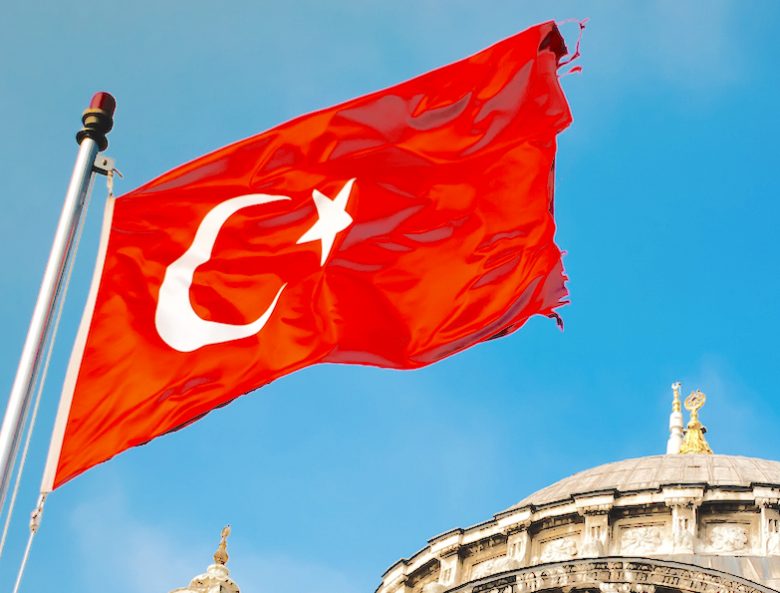The Government of Turkey has published amended citizenship regulations reducing the investment amounts to foster foreign direct investment in official gazette dated 18 Sep 2018.
According to the new amendments, foreigners buying real estate or invest in any of the following options will be eligible for turkish citizenship by investment
- Buy real estate atleast $250,000 not sold for 3 years
- Deposit atleast $500,000 in Turkish banks
- Buy $500,000 Turkish government bonds locked for 3 years
- Buy $500,000 worth of VC fund share
- Employ atleast 50 people
 .
.
Real estate companies and associations in Turkey have welcomed the move, as this will attract more foreign investors in $250,000 to $300,000 range.
Turkish government amends citizenship requirements for foreigners. https://t.co/oB6b9EwSCY 🇹🇷 pic.twitter.com/iB92WJabbk
— Invest in Turkey (@InvestTurkey) September 21, 2018
Investing in Turkey is currently cheaper because of the fall in Turkish lira which plunged by 40% last month.
Bitcoin
In a survey turkish people are largest to own Bitcoin because of free fall of lira. It is not entirely clear Bitcoin or other cryptocurrencies will be accepted for citizenship program or by real estate companies. Currently Antigua is the only country that officially accepts bitcoin for CBI program.
Real Estate
In Turkey, house sales increased by 2.7% in May 2018 compared to the same month of the previous year and hence, became 119 655. For May 2018, İstanbul had the highest share of house sales with 16.8% and 20 061 sold house. The followers were Ankara with 11,919 house sales and İzmir 7 028 house sales with the share of 10% and 5.9% respectively.
In May 2018 alone , 2 415 houses were sold to foreigners in Turkey, according to statistics office, increased by 36.1% compared to the same month of the previous year.
Istanbul is the favorite destination for foreigners buying property in Turkey for May 2018 (1 month).
- Istanbul – 854 house sales
- Antalya – 595 house sales,
- Bursa – 141 house sales,
- Yalova – 108 house sales and
- Ankara – 96 house sales.
Iraqi citizens bought 407 houses from Turkey in May.
- Iraq – 407 house sales
- Iran – 217 house sales,
- Saudi Arabia – 206 house sales,
- Russia – 165 house sales and
- Afghanistan – 131 house sales.
Foreign Direct Investment (FDI) Law No. 4875 is designed with the following benefits
- to encourage FDI in the country
- to protect the rights of investors
- to align the definitions of an investor and investment with international standards
- to establish a notification-based system rather than an approval-based one for FDI
- to increase the volume of FDI through streamlined policies and procedures
The FDI Law provides a definition of foreign investors and foreign direct investments. In addition, it explains important principles of FDI, such as freedom to invest, national treatment, expropriation and nationalization, freedom of transfer, national and international arbitration and alternative dispute settlement methods, valuation of non-cash capital, employment of foreign personnel, and liaison offices.
The Regulation on the Implementation of the FDI Law consists of specifying the procedures and principles set forth in the FDI Law. The aim of the FDI Law with regard to the work permits for foreigners is to regulate the work carried out by foreigners and stipulate the provisions and rules on work permits given to foreigners
- Turkey has Bilateral Agreements for the Promotion and Protection of Investments with 75 countries
- Turkey has signed Double Taxation Prevention Treaties with 80 countries. This enables tax paid in one of two countries to be offset against tax payable in the other, thus preventing double taxation.
- Turkey has signed Social Security Agreements with 26 countries.
- Turkey has FTAs with 37 countries, creating a free trade area in which the countries agree to eliminate tariffs, quotas and preferences on most goods and services traded between
- A Customs Union Agreement between Turkey and the European Union has been in effect since 1996. The agreement allows trade between Turkey and the EU countries without any customs restrictions.





